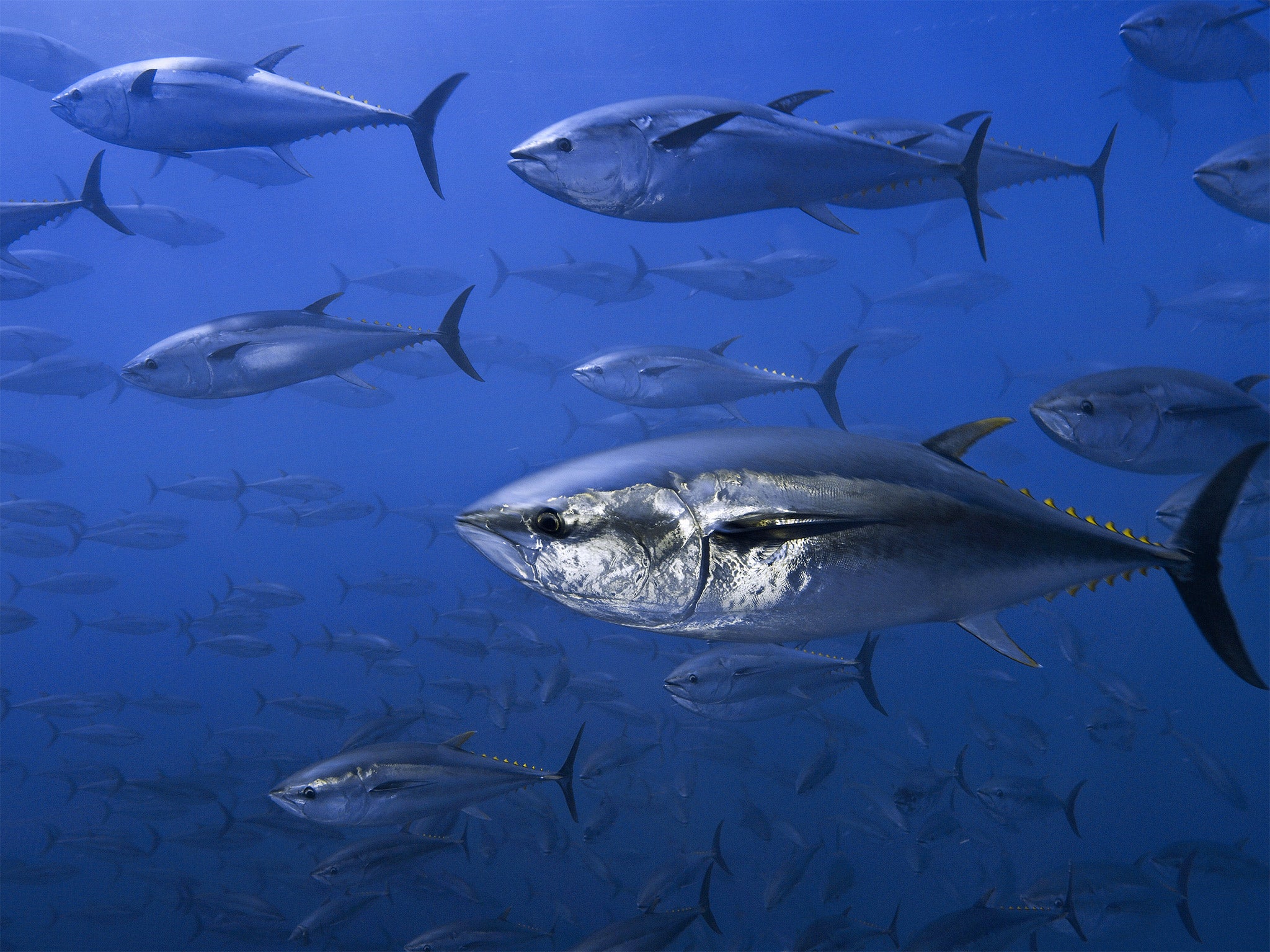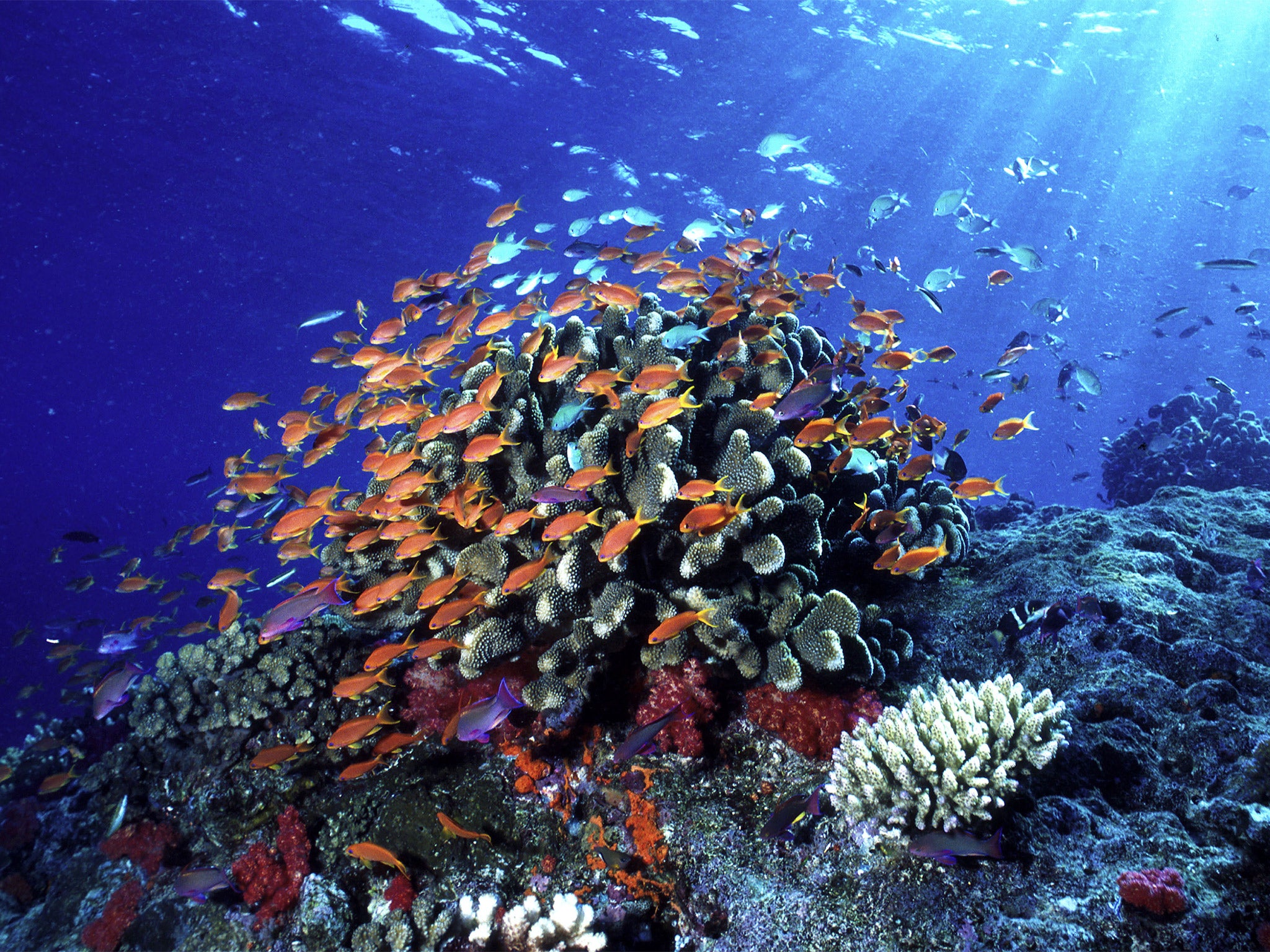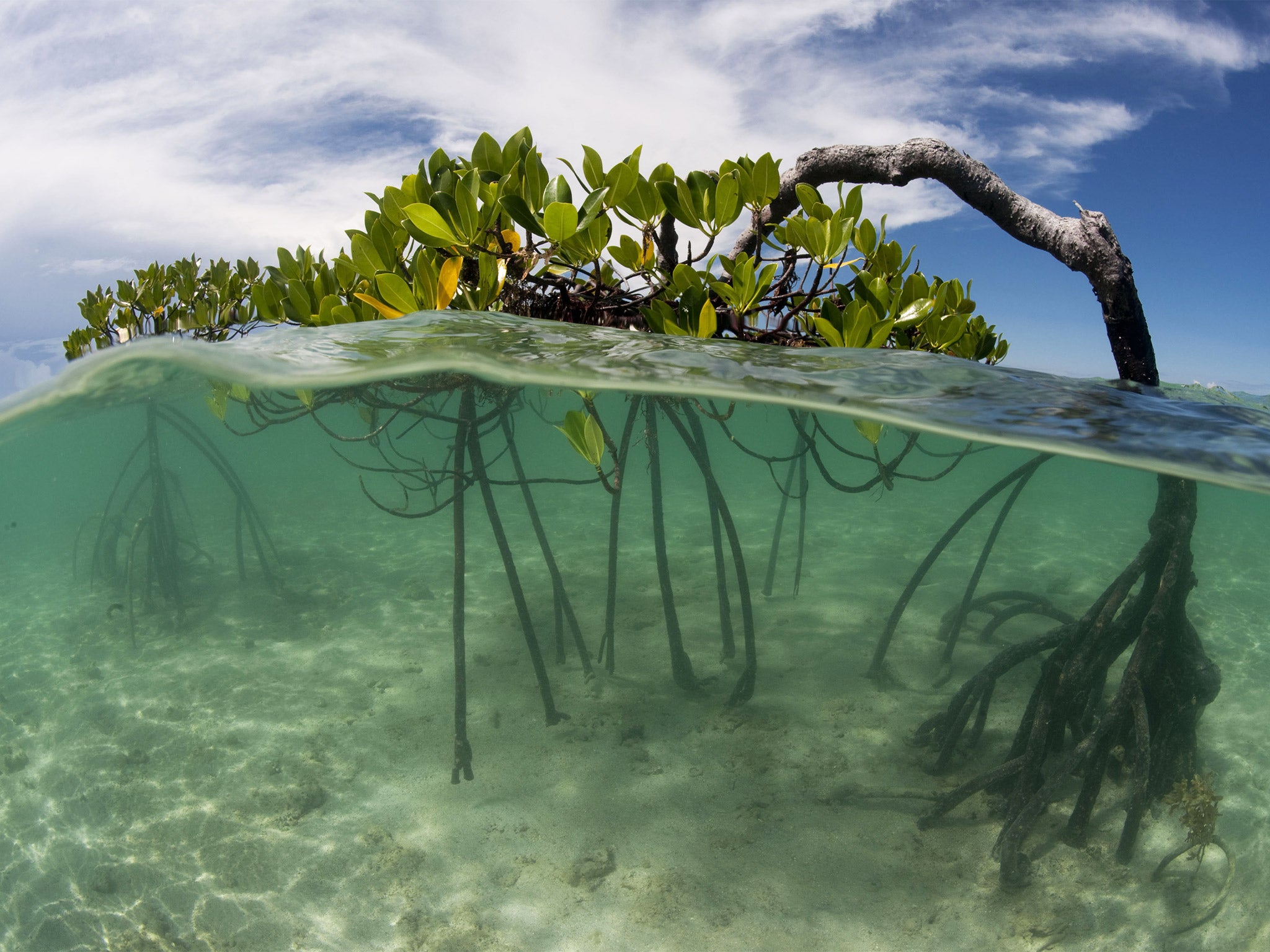Marine wildlife populations have halved in the last 40 years, report finds
Habitat, overfishing and sea temperatures have all played a part

Your support helps us to tell the story
From reproductive rights to climate change to Big Tech, The Independent is on the ground when the story is developing. Whether it's investigating the financials of Elon Musk's pro-Trump PAC or producing our latest documentary, 'The A Word', which shines a light on the American women fighting for reproductive rights, we know how important it is to parse out the facts from the messaging.
At such a critical moment in US history, we need reporters on the ground. Your donation allows us to keep sending journalists to speak to both sides of the story.
The Independent is trusted by Americans across the entire political spectrum. And unlike many other quality news outlets, we choose not to lock Americans out of our reporting and analysis with paywalls. We believe quality journalism should be available to everyone, paid for by those who can afford it.
Your support makes all the difference.Populations of marine wildlife have plummeted by a half on average over the past 40 years with some species suffering far greater declines as a result of habitat loss, overfishing, rising sea temperatures and worsening ocean acidity, a major report has found.
The scale of the crisis facing the animals and plants of the sea is documented in detail by the study which claims that marine species around the world, including some that are critical to human food security, are in potentially catastrophic decline.
Unprecedented pressures on the global ocean ecosystem from several directions are combining to create a perfect storm of difficulties for virtually everything that lives in the sea, says the WWF’s Living Blue Planet report.

Some marine habitats such as mangroves and seagrasses, on which many other species depend, have seen significant declines, while whole populations of commercially valuable fish, such as mackerel and tuna, have plummeted by as much as three quarters since the 1970s, the report found.
Many coral reefs, often described as the tropical rainforests of the oceans because of their rich diversity of life, could be threatened with extinction by mid-Century if ocean acidity continues to worsen as a result of rising levels of CO2 in the atmosphere – which causes a corresponding rise in carbonic acid in the sea.
“As well as being a source of extraordinary natural beauty and wonder, healthy seas are the bedrock of a functioning global economy,” said Louise Heaps, chief advisor on marine policy at WWF-UK, who helped to compile the report.
“By over-exploiting fisheries, degrading coastal habitats and not addressing global warming, we are sowing the seeds of ecological economic catastrophe,” Dr Heaps said.
The report, based on a review of the published scientific literature as well as the Living Planet Index, a database maintained by the Zoological Society of London, is one of the most detailed surveys of marine wildlife ever undertaken.

It investigated a wide range of wildlife, from fish, marine turtles and sea cucumbers – a worm-like animal with leathery skin – to sea plants such as mangroves and sea grasses. The report found that seagrass coverage has declined by about 30 per cent over the past century while the total area covered by mangroves has dropped by 20 per cent between 1980 and 2005, primarily as a result of shrimp farming and other forms of aquaculture.
“In the space of a single generation, human activity has severely damaged the ocean by catching fish faster than they can reproduce while also destroying their nurseries. Profound changes a needed to ensure abundant ocean life for future generations,” said Marco Lambertini, director general of WWF International.
Some of the most dramatic declines have been in species fished for commercial gain. For instance, some 58 populations of 17 species belonging to the Scrombidae family – mackerels, tunas and sardines – have fallen by 74 per cent between 1970 and 2010, with no signs of recovery, the report says.
“We are in a race to catch fish that could end with people starved of a vital food source and an essential economic engine. Overfishing, destruction of marine habitats and climate change have dire consequences for the entire human population, with the poorest communities that rely on the sea getting hit fastest and hardest,” Mr Lambertini said.
“The collapse of ocean ecosystems could trigger serious economic decline and undermine our fight to eradicate poverty and malnutrition,” he said.
Professor Ken Norris, director of science at the ZL, said: “These devastating figures reveal how quickly human beings are changing the wildlife in our oceans and are a stark warning of the problems we might face as a result.”
Depleted species
Seagrasses: Vast underwater “meadows” that catch mineral-rich sediments and stabilise the seabed. Coverage has declined by 30 per cent over the past century.
Mangroves: Known to exist in 123 countries, with almost half the coverage in just five nations. Nearly 20 per cent of total mangrove area has been lost between 1980 and 2005, mainly due to human encroachment.
Coral reefs: Some of the most biologically rich and productive habitats on earth. A quarter of all marine species live in or near coral reefs yet three quarters of them are currently threatened and many could be lost this century is ocean acidity continues to worsen.
Deep-sea habitats: Little is known about the deeper parts of the ocean, but the decline in the number of fish caught in these inaccessible locations over the past 40 years suggests they are also being affected by global changes to the sea.
Join our commenting forum
Join thought-provoking conversations, follow other Independent readers and see their replies
Comments